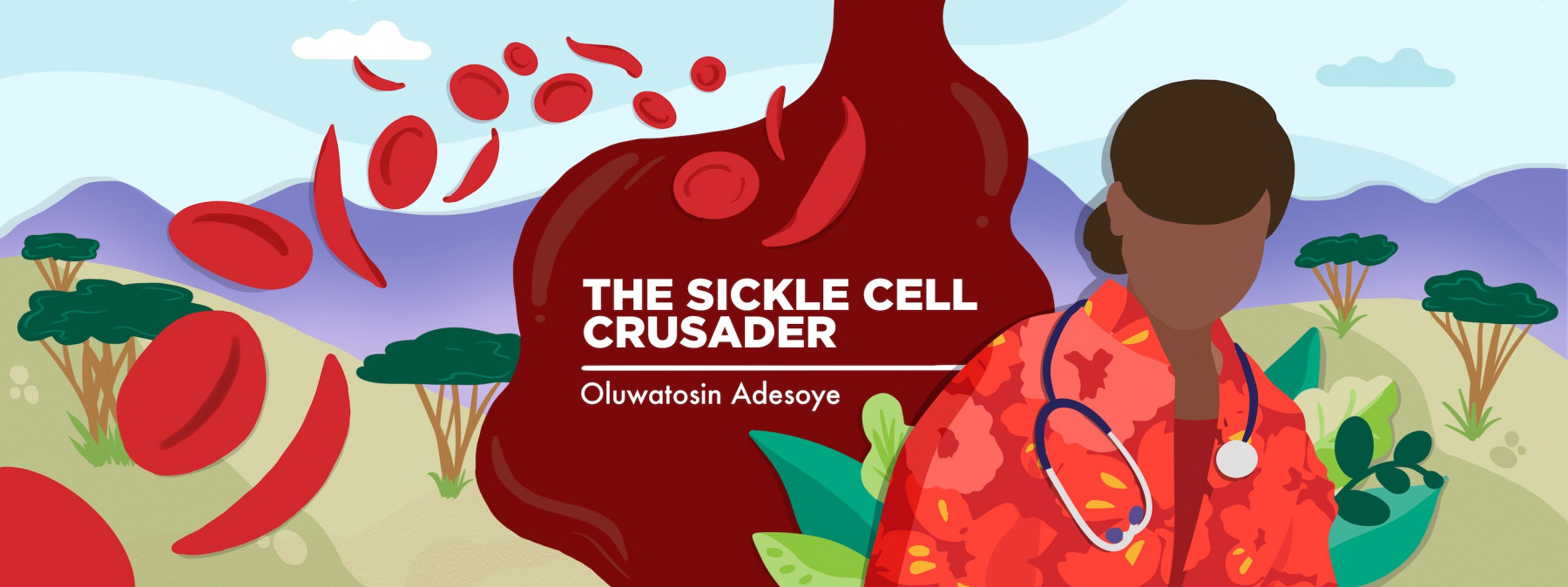We must stop neglecting Africa in the global fight against sickle cell
The majority of patients still lack access to essential healthcare, treatments
Written by |

In 2006, the World Health Organization recognized sickle cell disease as a global public health problem. Sickle cell is not just a genetic blood condition, but a multisystem disease that can damage organs and shorten life spans. Moderate or severe forms can be especially virulent.
While some treatments have been approved in developed countries, I question whether sickle cell is truly being treated as a disease of public health importance globally — especially here in sub-Saharan Africa, where I live.
According to an article published in 2016 in Hematology/Oncology Clinics of North America, about 80% of sickle cell births take place in sub-Saharan Africa. My country, Nigeria, is considered the epicenter of the disease, as it has the highest global incidence rate.
Not only is sickle cell prevalent here, but as a 2022 article published in the Pan African Medical Journal notes, “It contributes significantly to the morbidity and mortality of pediatric and adult population. About 50%-90% of children born with [sickle cell disease] in low- and low-middle-income countries of sub-Saharan Africa die before their fifth birthday.” This is a stark contrast with high-income countries like the U.S., where the life expectancy for sickle cell patients is 52.6 years old.
It’s high time sub-Saharan Africa stops being neglected in the global fight against sickle cell. One way this can be accomplished is by improving the availability and accessibility of treatment options here.
Barriers to treatment
Various drugs have been approved in certain countries to treat sickle cell. Disease-modifying therapies (DMTs) are particularly important for slowing disease progression, reducing complications, decreasing pain levels, preventing organ damage, improving quality of life, and prolonging life. However, these essential therapies remain out of reach for many.
In 2019, I was excited when I learned that two new DMTs had been approved in the U.S. for sickle cell disease. As a doctor who lives with the disease, I hoped Adakveo (crizanlizumab) and Oxbryta (voxelotor) would help many in our community.
But my excitement quickly dissipated when I heard about the cost. A 2019 New York Times article titled “Two New Drugs Help Relieve Sickle-Cell Disease. But Who Will Pay?” noted that each treatment would cost about $100,000 a year and would need to be taken for life. The article also noted, “Those prices are about double the median family income in the United States.”
Those two DMTs still aren’t available in Africa, but even if they were, the vast majority of patients here wouldn’t be able to afford them. Even as a medical doctor, I can’t afford to pay $100,000 a year for a medication.
Shouldn’t these drugs be more accessible and affordable to all people living with sickle cell disease? What use is a therapy if it can’t reach the majority of the people who need it?
Moving forward
Sickle cell shouldn’t be simply declared a disease of public health importance; it needs to be treated as one.
To accomplish this, more international health organizations, governments, and nonprofits need to start prioritizing sickle cell patients. Global health efforts have proven successful in the past. For example, the Global Fund to Fight AIDS, Tuberculosis and Malaria, a private-public partnership established in 2002, disbursed more than $19 billion to 151 countries in its first decade to fight these three diseases. Now, HIV and tuberculosis treatments are free in many countries, including Nigeria.
Because sickle cell disease is so expensive to manage, I also believe in free, universal healthcare that would provide all citizens with access to necessary medications. This would be especially beneficial in Africa, where many of us struggle to access health insurance.
It’s crucial to invest in more sickle cell advocacy, education, and research to improve or even save the lives of those affected by the disease. Everyone deserves a fighting chance.
Note: Sickle Cell Disease News is strictly a news and information website about the disease. It does not provide medical advice, diagnosis, or treatment. This content is not intended to be a substitute for professional medical advice, diagnosis, or treatment. Always seek the advice of your physician or other qualified health provider with any questions you may have regarding a medical condition. Never disregard professional medical advice or delay in seeking it because of something you have read on this website. The opinions expressed in this column are not those of Sickle Cell Disease News or its parent company, Bionews, and are intended to spark discussion about issues pertaining to sickle cell disease.







Leave a comment
Fill in the required fields to post. Your email address will not be published.